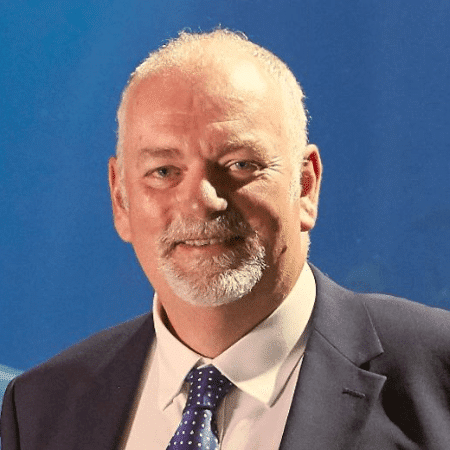The NEBRC has some excellent organisations and companies involved at the Board level. Board Members meet quarterly and are required to provide oversight governance for the NEBRC and review direction and progress against plans.
Find out more about our Board Members below.

Rebecca is a retired Superintendent with 30 years policing experience across…

Debra Cairns joined Net Defence in 2018 as Head of GRC having dedicated…

Graeme Tizard is the Portfolio Manager and Operations Lead for Network…

Babak Akhgar is Professor of Informatics, co-founder and Director of CENTRIC (Centre…

Jonathan Evison is the Police and Crime Commissioner for Humberside, elected in 2021…

Ed Renwick has over 25 years experience in Data Centre, Cloud and Managed Service…

Neil qualified as a solicitor in 1976, and spent 25 years in general, mainly commercial…

Lee has worked in financial services for 35 years, with over 20 years experience in…

Joy Allen is Police and Crime Commissioner for County Durham and Darlington…
The NEBRC Advisory Board serves in a consultative capacity and the responsibility of members include providing strategic guidance, industry expertise, and mentorship to our CEO without holding formal governance. Board members provide insight on business direction and growth, support decision-making, and act as a sounding board for executives. They often contribute valuable industry knowledge; help identify opportunities and assist with specific challenges or initiatives. Additionally, advisory board members help to expand our network by facilitating connections with their own partners or clients. Overall, the advisory board plays a key role in enhancing organizational strategy, reputation, and growth.
The role of the Police and Crime Commissioner on the Regional Centre Board is an important one as it promotes the Centre as a nexus for trusted security.
There will be several key tasks associated with the PCC commissioner –
| Cookie | Duration | Description |
|---|---|---|
| CookieConsent | 1 year 1 month 4 days | This cookie stores the user's consent state for the current domain. |
| cookielawinfo-checkbox-advertisement | 1 year | Set by the GDPR Cookie Consent plugin, this cookie records the user consent for the cookies in the "Advertisement" category. |
| cookielawinfo-checkbox-analytics | 1 year | Set by the GDPR Cookie Consent plugin, this cookie records the user consent for the cookies in the "Analytics" category. |
| cookielawinfo-checkbox-functional | 1 year | The GDPR Cookie Consent plugin sets the cookie to record the user consent for the cookies in the category "Functional". |
| cookielawinfo-checkbox-necessary | 1 year | Set by the GDPR Cookie Consent plugin, this cookie records the user consent for the cookies in the "Necessary" category. |
| cookielawinfo-checkbox-others | 1 year | Set by the GDPR Cookie Consent plugin, this cookie stores user consent for cookies in the category "Others". |
| cookielawinfo-checkbox-performance | 1 year | Set by the GDPR Cookie Consent plugin, this cookie stores the user consent for cookies in the category "Performance". |
| CookieLawInfoConsent | 1 year | CookieYes sets this cookie to record the default button state of the corresponding category and the status of CCPA. It works only in coordination with the primary cookie. |
| elementor | never | The website's WordPress theme uses this cookie. It allows the website owner to implement or change the website's content in real-time. |
| wpEmojiSettingsSupports | session | WordPress sets this cookie when a user interacts with emojis on a WordPress site. It helps determine if the user's browser can display emojis properly. |
| Cookie | Duration | Description |
|---|---|---|
| pvc_visits[0] | 1 day | Posts View Counter set this cookie to ensure accurate view counts on each page. |
| Cookie | Duration | Description |
|---|---|---|
| hubspotutk | 6 months | This cookie keeps track of a visitor's identity. It is passed to HubSpot on form submission and used when deduplicating contacts. It contains an opaque GUID to represent the current visitor. |
| pardot | past | The pardot cookie is set while the visitor is logged in as a Pardot user. The cookie indicates an active session and is not used for tracking. |
| _fbp | 3 months | Facebook sets this cookie to display advertisements when either on Facebook or on a digital platform powered by Facebook advertising after visiting the website. |
| _ga | 1 year 1 month 4 days | Google Analytics sets this cookie to calculate visitor, session and campaign data and track site usage for the site's analytics report. The cookie stores information anonymously and assigns a randomly generated number to recognise unique visitors. |
| _ga_* | 1 year 1 month 4 days | Google Analytics sets this cookie to store and count page views. |
| __hssc | 30 minutes | This cookie keeps track of sessions. This is used to determine if HubSpot should increment the session number and timestamps in the __hstc cookie. It contains the domain, viewCount (increments each pageView in a session), and session start timestamp. |
| __hssrc | session | Whenever HubSpot changes the session cookie, this cookie is also set to determine if the visitor has restarted their browser. If this cookie does not exist when HubSpot manages cookies, it is considered a new session. |
| __hstc | 6 months | The main cookie for tracking visitors. It contains the domain, hubspotutk, initial timestamp (first visit), last timestamp (last visit), current timestamp (this visit), and session number (increments for each subsequent session). |
| Cookie | Duration | Description |
|---|---|---|
| lpv* | 1 hour | This cookie is part of Pardot and prevents the tracking of multiple page views over a single session. |
| visitor_id* | 1 year 1 month 4 days | Pardot sets this cookie to store a unique user ID. |
| visitor_id*-hash | 1 year 1 month 4 days | Pardot sets this cookie to store a unique user ID. |
Babak Akhgar is Professor of Informatics, co-founder and Director of CENTRIC (Centre of Excellence in Terrorism, Resilience, Intelligence and Organised Crime Research) at Sheffield Hallam University and Fellow of the British Computer Society. CENTRIC provides law enforcement agencies with state of the art capabilities to conduct a wide range of open source based investigation from Organised Crime network to Counter Terrorism. Babak has extensive hands on experience in development, management and execution of Intelligence Management projects in large international security initiatives. He is currently the technical lead of 2 EU Security projects “Profits” on Cyber Crime and Cyber Terrorism and “Tensor” on identification of terrorist generated content.
Babak has co-edited a book on Intelligence Management (Knowledge Driven Frameworks for Combating Terrorism and Organised Crime). His recent books are entitled Strategic Intelligence Management (National Security Imperatives and Information and Communications Technologies) Emerging Trends in ICT Security, Application of Big Data for National Security and Application of OSINT for Investigation and Dark Web Investigation for LEAs. In 2016 Babak was chairman of the Police Strategy forum.
Babak is a member of the Academic Advisory Board of SAS UK, Board member of ECTEG (European CyberCrime Training and Education Group), Board member of European Organisation for Security (EOS) and member of Europol External Advisory Board on data protection and member of Europol EC3 Academic Advisory Board.